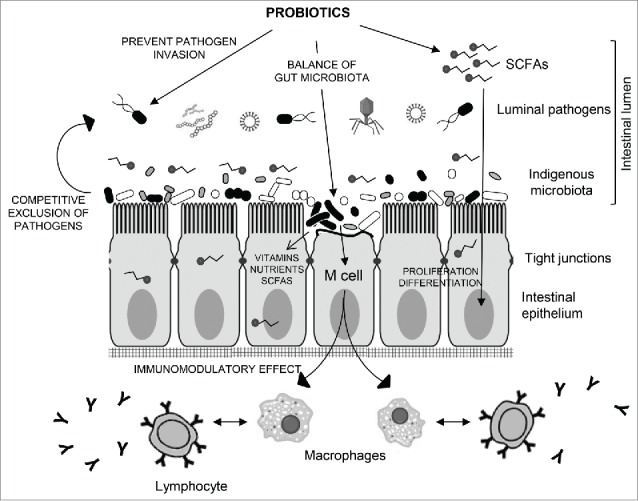Figure 3.

Schematic representation of the cross-talk interaction of indigenous microbiota and probiotics with the intestinal epithelium. Intestinal microbiota protects the mucosa from adherence and invasion by exogenous pathogens and thus assists in balance microbiota maintenance and prevention of dysbiosis. These probiotic bacteria may also allow beneficial effects through release of nutrients (vitamins, SCFAs, sugars). Intestinal absorption of SCFAs translates into reinforcement of the intestinal epithelial cells. Indigenous microbes and probiotics would also interact M cells and consequently modulate innate and adaptive immunity by activating release of macrophages and cytokines including IL-4, TGF-β, IL-5, IL-6, and IL-10. M cells in Peyer's patches may contribute to present microbial antigens to naive T cells, allowing IgA antibody-mediated mucosal response.
